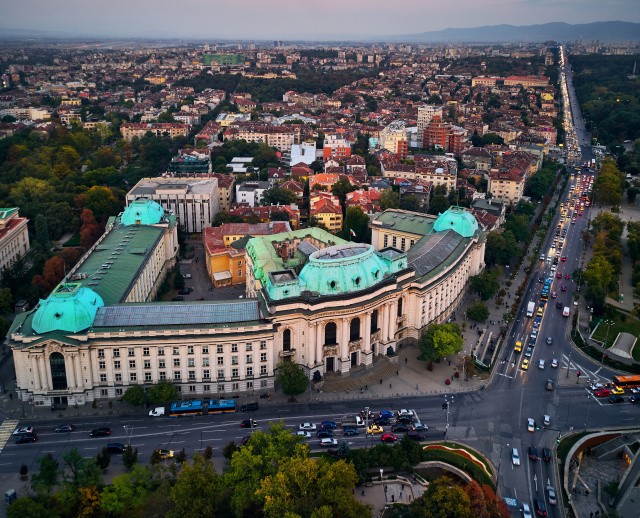The number of students in Bulgarian universities increased by more than 4,000 in the academic year 2020/2021. Their total number reached 202,605, according to data from the Rating System of Higher Education Institutions in Bulgaria. Its 11th edition was presented today at the Ministry of Education and Science (MES), a BGNES reporter reported.
The largest university remains Sofia University “St. Kliment Ohridski ”. 22,250 future graduates study there. In second and third place are Plovdiv University “Paisii Hilendarski” and UNWE, with 16,580 and 14,600 students, respectively. Twelve universities in the country have less than 1,000 graduates. 13% of students are in private universities, most often studying in the fields of “Theater and Film Arts” and “Art Theory”. The most popular professional field is still Economics. It is studied by 29,321 people. In recent years, however, their numbers have declined significantly due to the state’s consistent efforts to regulate the demand for education and the supply of jobs in the labor market. In second place in terms of number of students is “Pedagogy” with 16,719 future graduates, and in third place is “Medicine” with 13,186.
The policies of the Ministry of Education and Science to increase the attractiveness of the teaching profession are already yielding results. In the last academic year, the number of freshmen in “Pedagogy of по education” jumped the most – by 24%, and in “Pedagogy” – by 9%. The number of future doctors has also increased – by 6%. At the same time, students in Public Health decreased by 11% and students in Tourism – by 10%. Over the years, there has been a tendency for graduates in tourism to find it difficult to find a job in the specialty and often lose their jobs. The new edition of the Rating System shows that the highest unemployment is among the graduates of “Tourism” – 5.9%. One in five (21%) of them has not found an application for the acquired higher education. Unemployment is lowest among graduates in Medicine, Pharmacy, Dentistry and Military Affairs – less than 1%.
In the first five years after graduation, 53% of university graduates in the country have worked in positions requiring higher education. In 2014, their share was 46 percent. There is also an increase in the average insurance income. In 2021 it is BGN 1,520 compared to BGN 1,373 last year and BGN 867 in 2014. The largest increase is in the professional fields that train staff for healthcare and education. The average insurance income of the graduates of Medicine for the last year has jumped by 35%, of the graduates of Health Care – by 30%, and of the graduates of pedagogical and educational professional fields – between 17% and 20%. The professional fields with the highest average income among the graduates are “Informatics and Computer Science”, “Mathematics”, “Communication and Computer Engineering”, “Research, Mining and Processing of Minerals”, “Metallurgy” “Public Health”, “Medicine”, “Electronics, Electrical Engineering and Automation” and “Military Affairs”. The data from the Rating System show an increase in the number of scientific publications of higher education institutions in international bibliographic databases. Their number in the Web of Science for the period 2016-2020 is approximately 19,000 and exceeds 1,400 publications in the previous five-year study period. The number of publications in Scopus is 18,400 – more than 2,400 more than in the period 2015-2019. is approximately 19,000 and exceeds 1,400 publications in the previous five-year study period. The number of publications in Scopus is 18,400 – more than 2,400 more than in the period 2015-2019. is approximately 19,000 and exceeds 1,400 publications in the previous five-year study period. The number of publications in Scopus is 18,400 – more than 2,400 more than in the period 2015-2019.
In the standardized rankings for 2021, Sofia University is the first in 23 out of 30 professional fields in which it offers training. The Technical University of Sofia has six first places out of a total of 11 areas in which it prepares students. The Medical University of Sofia is first in four directions, UCTM – in three. The American University, the Agricultural University in Plovdiv and the Thracian University have two first places each. Another 12 universities head one ranking each. In eight professional fields, the rankings are headed by universities outside the capital, and in three professional fields – by private universities.

